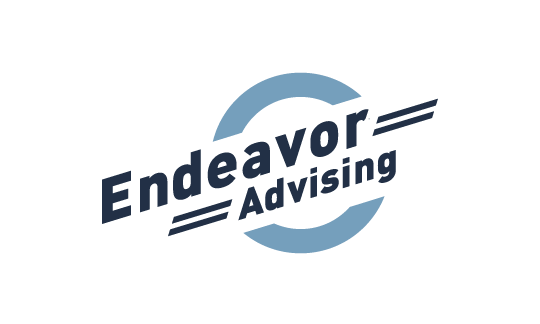Endeavor Advising Guidelines for College Applications Students
Student Responsibilities
1. Check email regularly (we suggest once a day). Thoroughly read all emails from us and from colleges you’re applying to– this is critical so you don’t miss important information. Also, some colleges track if students read emails as part of demonstrated interest, which can have an impact on an admissions decision.
2. Check portals regularly after applying (we suggest once a week). Portals are where you track the status of your submitted applications and ensure they’re complete for review. Alert your Advisor immediately if there are any missing or requested materials.
3. Update your CustomCollegePlan account promptly and regularly. This allows us to stay updated on which To Do’s you’ve completed and the status of application components so that we can plan for our meetings.
4. Understand your high school's requirements and process for documents. Your school may require use of a certain system (such as Naviance, SCOIR, or Parchment) for important documents like letters of recommendation and transcripts. Your school may also require preliminary information or set specific deadlines for requesting documents, as well. Your best resource for questions about your school’s requirements is your high school counselor. Please share this information promptly with your Endeavor Advisor.
5. Meet deadlines that you set with your Advisor. We will create a plan for completing components, drafting essays, and submitting applications; meeting application deadlines depends on completing smaller assignments on time. If a student misses more than one deadline during the application phase, their Advisor will notify parents by email. All writing must be completed by December 1st, 2025.
6. Have written work complete in our shared Google folder no later than 48 hours prior to meetings. This ensures we have time to read drafts and provide meaningful feedback. If a student’s work is done at the last minute repeatedly, their Advisor will notify parents by email.
7. Give advance notice (minimum 24 hours) if you need to reschedule a meeting. We strive to be flexible with students’ busy schedules, but during application season our availability becomes more limited. Meetings repeatedly changed or canceled with less than 24 hours’ notice may incur a $50 change fee. If a student does not show up for a meeting, it will be canceled after 10 minutes and there will be a $75 missed meeting fee. If you’re running late, please try to text us.
Student Voice in College Essays
Essays are a student’s chance to highlight aspects of themselves that may not be apparent in other areas of their application. Each student will complete brainstorming activities to identify examples of their unique values, qualities, skills, and interests. We work diligently to help students brainstorm meaningful essay topics and to help them improve drafts while respecting their unique ideas and ways of communicating.
It is imperative that students’ writing be their own work, in their own voice. Well-meaning suggestions from too many people usually negatively affect a student’s work, and it is easy for experienced essay readers to identify when a teenager’s writing has been overly influenced by others. This can severely and negatively impact a student’s applications.
Artificial Intelligence (AI) and College Essays
We strongly suggest that students refrain from using AI with their writing for several reasons:
Robots sound like, well, robots. In our experience reading thousands of essays, AI-generated writing is bland. It lacks insight and reflection. The structure is predictable and formulaic, and the word choice is often exaggerated or corporate-sounding. It reads like a robot wrote it-- exactly the opposite of what makes a good college essay.
You could break critical rules without knowing it. Many colleges consider the use of AI to be a plagiarism infraction that is grounds for throwing out an application. Common App (the platform that you will use to submit applications) considers the use of AI to generate essay content as fraud, which is grounds for an application to be cancelled or an acceptance to be rescinded. See their full policy here.
AI? Deny. AI-detecting software is being used in some college admissions offices; colleges will not spend extra time or effort on a questionable essay. They will simply deny the student.
The writing journey is useful. Learning to write well takes practice. By writing and revising their essays, students build skills and knowledge that they will take with them into a successful college career.
In order to provide useful feedback for students, we’ve developed an established process. Endeavor Advising’s policy is that all student writing will be done in a shared Google Doc that includes version history. If a draft does not include version history, we’ll ask the student to provide it before reviewing the draft. If the student can not provide version history, we will decline to review that draft and notify a parent by email.
Version history enables us to review the student's writing process so we can understand the content, structure, and words the student has chosen. This allows us to help students achieve their best work and the best outcomes. (It also helps us avoid a robot’s word-salad of flashy adjectives.)
If you have any questions about any of these guidelines, please let us know. We look forward to working with you!
—The Endeavor Advising team
